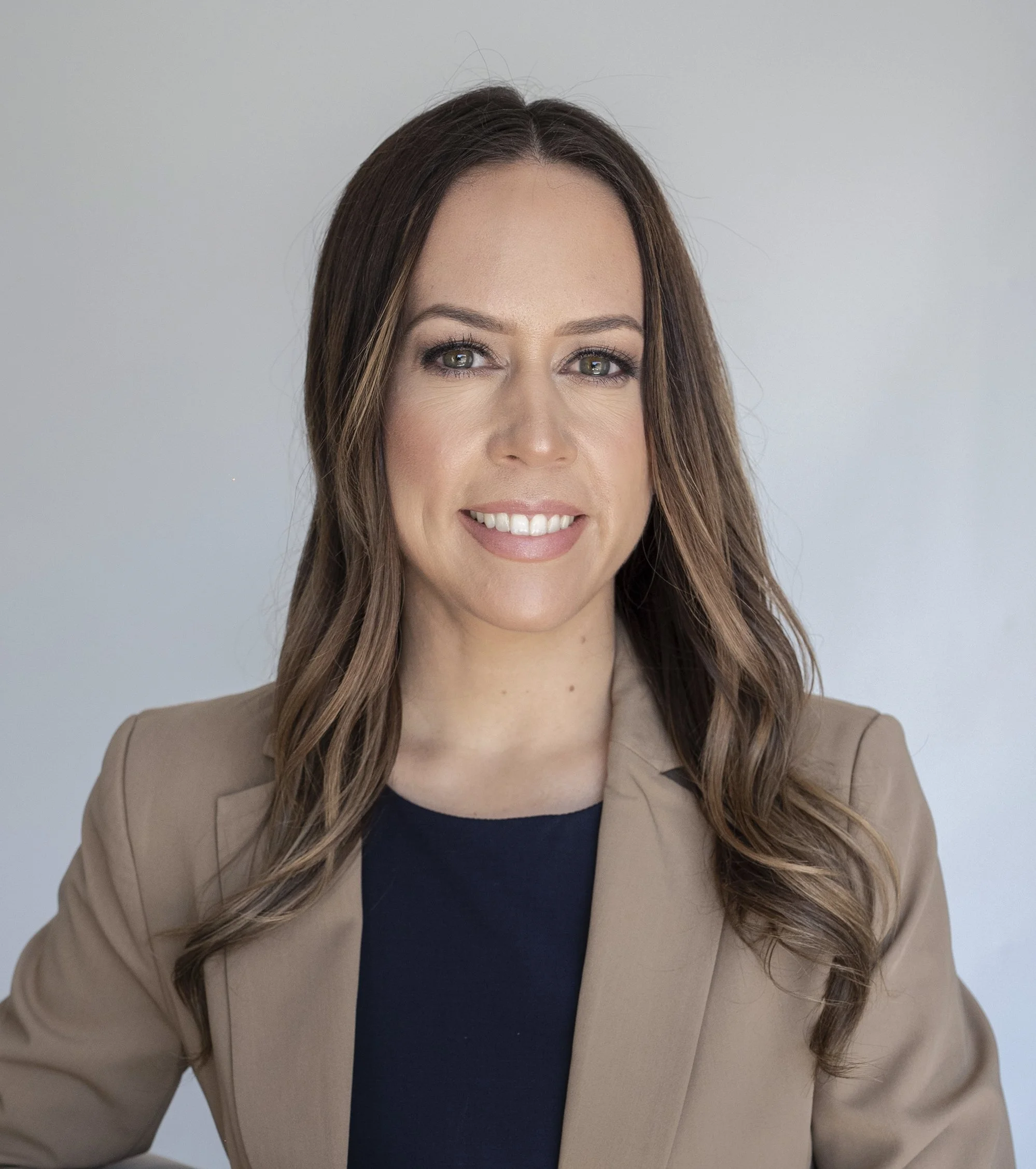Codependency, People-Pleasing, and How to Take Your Power Back in Relationships
If you’ve ever felt like you give more than you get, or you’re always bending over backward to keep the peace in relationships, you might be stuck in a codependent dynamic. And if you identify as a people pleaser, you're especially vulnerable to falling into this trap.
Why does this happen, and what can you do about it? Here’s what codependency really is, what distinguishes it from anxiety, what causes it, and how you can begin rewriting this story.
What Is Codependency?
Codependency is a relational pattern where your sense of identity and self-worth becomes entangled with another person’s well-being. It often involves:
Prioritizing someone else’s needs at the expense of your own
Having a hard time saying “no” or setting boundaries
Feeling responsible for someone else’s emotions, behavior, or life outcomes
Fearing rejection or abandonment so intensely that you people-please to avoid it
Getting your self-worth from being needed, helpful, or indispensable
People who struggle with codependency may not realize they’ve lost themselves in the relationship. They might think or say things like:
“If they’re okay, then I’m okay.”
“They’d fall apart without me.”
“I can’t leave or stop. They need me too much.”
Codependency often shows up most strongly in romantic relationships, but it can also show up in family dynamics, such as with your child or a parent, or in friendships.
Codependency is tough for everyone involved.
It can feel like you’re hemorrhaging yourself to make sure someone else is okay or to maintain the peace. It’s often incredibly painful and exhausting.
Jumping in to rescue or fix at the earliest sign of trouble can also keep the other person from being able to fully manage their own emotions or work through their own problems. This can signify a lack of trust and autonomy.
Codependency vs. Anxiety
Codependency is different from feeling anxious or “clingy.” The latter experiences are more about needing reassurance and connection.
Here are some differences to tell them apart.
| Anxiety | Codependency | |
|---|---|---|
| Motivation | Driven by fear of abandonment and desire for closeness | Driven by fear of rejection and need to feel needed or in control |
| Self-worth | Depends on feeling loved or reassured | Depends on being needed or sacrificing for others |
| Boundaries | Struggles with respecting a partner’s space | Struggles with recognizing or setting personal boundaries |
| Control | May feel insecure, but doesn’t try to fix or rescue | Often feels responsible for fixing or managing others |
| Relationship Focus | Seeks connection and attention | Seeks purpose and identity through caregiving or enabling |
| Autonomy | May want more time together, but doesn’t dissolve their own identity | Identity often merges with the other person’s |
Both relationship anxiety and codependency tend to stem from early attachment wounds. Codependency focuses on control, caretaking, and martyrdom. Relationship anxiety doesn’t necessarily mean you’re controlling or over-functioning for the other person. It means you feel a strong fear of being alone or abandoned, and you look to your partner for constant validation to ease those fears.
While anxiety can be difficult in a relationship, it doesn’t always cross into codependency territory. Some anxious behaviors may fade as trust and security are built. But if your self-worth depends on how needed you are, or if you feel the urge to constantly insert yourself into someone’s life in order to “fix” them, codependency may be playing a bigger role.
What Causes Codependency?
People don't just wake up one day and choose codependency. These patterns are often learned from your family of origin.
Maybe you grew up in a household where one parent struggled with mental illness, addiction, or emotional instability. You learned to scan the room, sense everyone’s moods, and take responsibility for calming things down. You might’ve gotten praise for being “mature for your age” or “so helpful.” In reality, though, you were being trained to suppress your own needs to keep the peace.
If caregivers were absent, hot and cold with affection, reacted poorly to your emotions, or taught you that you needed to act a specific way to earn love and approval, you’re much more likely to become codependent during adult relationships. The act of sacrificing your own needs and values to maintain relationships can feel like a buffer protecting you from abandonment. This isn’t really how it works, though. Codependency strains relationships and can cause a lot of pain and resentment for everyone involved.
Why People-Pleasers Are Prime Targets for Codependent Dynamics
If you're a people-pleaser, your nervous system has been wired to:
Avoid conflict at all costs
Make others happy (even when it hurts you)
Prove your worth through giving, helping, or being “easy to love”
These tendencies make it much easier to fall into a relationship where your role becomes “the caretaker” or “the fixer.” You may find yourself attracted to partners who need you (emotionally, financially, or practically) because being needed feels like love.
How Both People “Benefit” in a Codependent Relationship
Codependency can look like love, loyalty, and devotion on the surface. But underneath, both people are stuck in roles that reinforce each other’s wounds:
The people-pleaser feels valued or purposeful through self-sacrifice.
The dependent person gets their needs met without having to change or take responsibility.
At best, no one truly gets to grow. There’s no room for mutual support, honest communication, or balanced emotional labor. Instead, there's an unspoken agreement: “I’ll keep fixing if you keep needing.”
At worst, people can become stuck in cycles of resentment, manipulation, and even abuse.
6 Steps You Can Take Toward Ending Codependency
Breaking free from people-pleasing and codependent patterns isn’t about shaming or blaming yourself or others. It’s about learning new ways to relate in relationships.
Here’s where you can start:
Get curious about your patterns.
Notice where in your relationships you feel depleted, resentful, or invisible. Ask yourself: “Am I giving because I want to, or because I’m afraid of what happens if I don’t?”Recognize that your actions are likely doing more harm than good.
You mean well and probably think you’re being helpful. But ultimately your actions are about attempting to control someone else. This is unhealthy. There’s no shame in recognizing this. Acknowledging when your behaviors aren’t serving you or anyone else is not disgraceful; it’s incredibly courageous.Learn to tolerate discomfort.
Setting boundaries or saying no might feel really wrong at first. That’s okay. Discomfort is part of growth, and it doesn’t mean you’re doing it wrong.Reconnect with your own needs.
You are allowed to take up space. You’re allowed to want more. Start checking in with yourself: “What do I need right now?”Practice receiving.
You’re not only worthy when you’re giving. Start letting others support you, even in small ways. Let someone else handle school pickup. Accept help without guilt.Get support.
These patterns run deep. You don’t have to unravel them alone. Therapy or coaching can help you rewrite your story and build relationships based on trust and mutual care, not silent sacrifice.
You deserve more than being someone’s emotional life raft. You deserve to build relationships where you’re seen, supported, and loved for who you are, not for what you do. And your relationships deserve space for everyone to exist as they are and take charge of their own problems.
If you’re ready to break patterns of codependency and people-pleasing patterns, all of us at Justine & Co are here to help. Reach out today for a free consultation for therapy or coaching and let’s talk.
You’re not too much. You’re not selfish. You’re allowed to choose yourself.
MEET THE AUTHOR
Justine Carino
Justine is a licensed mental health counselor with a private practice in White Plains, NY. She helps teenagers, young adults and families struggling with anxiety, depression, family conflict and relationship issues. Justine is also the host of the podcast Thoughts From the Couch.





